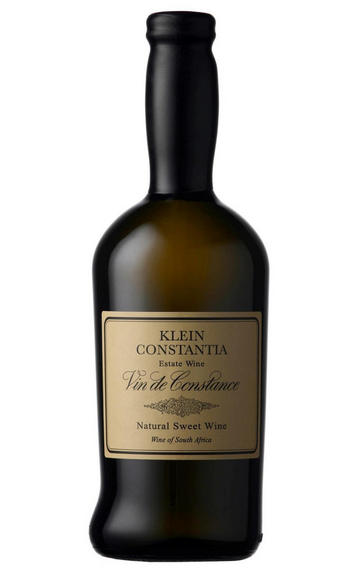
2018 Klein Constantia, Vin de Constance, Constantia, South Africa
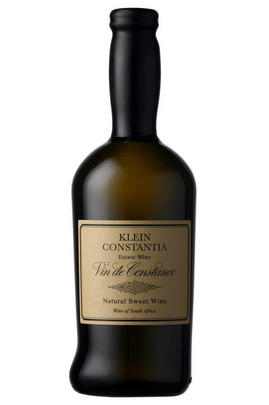
Critics reviews
Neal Martin, vinous.com (November 2021)
Drink 2021 to 2040
Jane Anson, Inside Bordeaux (October 2021)
James Suckling, jamessuckling.com (Aug 2021)
Georgina Hindle, Decanter (July 2021)
Tim Atkin MW, SA Special Report 2021
Vintage reports suggest that the build-up to the 2018 harvest brought the highest summer rainfall of the last six years and, combined with some of the coldest night-time temperatures on record, the vines were granted a very long and very slow growing season. These conditions have imbued extreme delicacy of perfume and flavour and also staggering concentration and length in this wine. It also means that the 2018 vintage has otherworldly characteristics and I cannot remember a young vintage tasting so refined and demure.
Light bunches and tiny Muscat de Frontignan berries underline just how unusual this vintage was and with a harvest that was a fortnight later than average and crops down by about 15% all of these facts make sense when you taste this ethereal wine. Aged for three years in a combination of 50% new French oak barrels, a small number of acacia barrels, as well as large format foudres, this is both a sensual and also sensitive wine. For a start, the colour is incredibly pale – think a young Sancerre! But the viscosity is amazing when you pour a glass because the liquid moves ever so slightly slower and more deliberately into the glass.
The lights come on and the brain fires up immediately and it takes you by surprise just how quickly your olfactory system senses that you are in the presence of greatness. I was in a state of heightened anticipation, long before I raised the glass to my lips and the reward is exquisite. The perfume and palate combine in an astral haze of delight with orange blossom, fig, lemon verbena, wild honey and acacia notes caressing your senses. The texture is super-smooth, incredibly long and unnervingly gentle. It certainly possesses the longest finish I can remember on a Vin de Constance and I have, very fortunately, tasted huge number of vintages of this wine. If you have never tasted this wine before, please start with this vintage – it will blow your mind. If you have and you are a fan, this is a critical purchase for your collection. I cannot wait to add this wine to my cellar later in the year. Drink now – 2070.
Matthew Jukes, matthewjukes.com (Aug 2021)
About this WINE
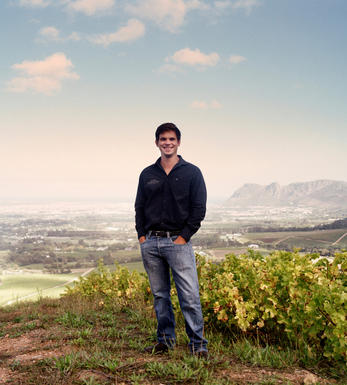
Klein Constantia
Klein Constantia is a wine farm in Constantia, a ward in the suburbs of Cape Town, South Africa. It was once part of a larger estate called Constantia, which was founded in 1685. Following the death of founder Simon Van der Stel in 1712, that estate was sold at auction and divided into three distinct properties. Perhaps best known for the sweet wine Vin de Constance, Klein Constantia is among South Africa’s best-known producers.
The estate is owned by a number of businesspeople, including Zdeněk Bakala and Charles Harman, who acquired it in 2011. The following year, Klein Constantia merged with Stellenbosch’s Anwilka Estate. The latter’s Bordelais owners Hubert de Boüard (of Château Angélus) and Bruno Prats (formerly of Cos d’Estournel ) became shareholders as a result.
Head winemaker here is Matthew Day. The talented young South African worked internationally (in Bordeaux, Barossa Valley, and Napa Valley) before joining, initially as an assistant winemaker, in 2008. In addition to Vin de Constance, Matthew and his team craft a complete range that includes red, white, rosé, and even sparkling wines. He is particularly interested in Sauvignon Blanc, taking inspiration from some of the Loire Valley's top producers, including the late Didier Dagueneau. Vin de Constance is a naturally sweet wine from the Muscat de Frontignan grape.
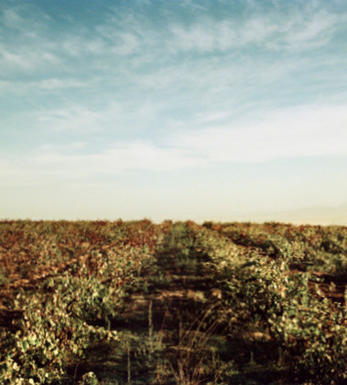
Constantia
The historically important if tiny wine district of Constantia lies in Cape Town’s southern wards, and on the most southerly point of Africa, the Cape of Good Hope.
Constantia is most famous for its ancient dessert wine Vin de Constance (made from Muscat de Frontignan) as produced by Klein Constantia estate.
The cooling, south-easterly sea breezes make Constantia a natural site for Sauvignon Blanc, Semillon as well as Muscat.
The district is home to a mere 8 wine estates, including Klein Constantia, Groot Constantia, Buitervenwachting, Constantia Uitsig, Eagles' Nest, Steenberg, Constantia Glen
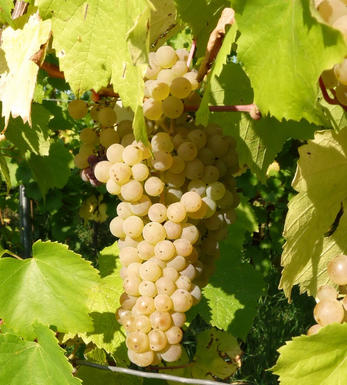
Muscat
Muscat refers to a family of grapes of which there are around 200 different branches. Muscat Blancs à Petits Grains is the most noble of the variety and makes the best and most distinctive wines. It is the only wine grape that produces wines that actually taste of grapes, and can produce a range of wines from pale, bone dry whites, through to golden yellow, rich, sweet wines.
In Alsace, two types of Muscat are grown - Muscat Blancs à Petits Grains and Muscat Ottonel. They are usually blended to produce wines that tend to be light and dry with a fruity, musky character and an intensely aromatic bouquet. Intensely sweet late harvest wines are also produced.
Muscat de Beaumes de Venise is one of the best Vin Doux Naturels in France. This is produced by adding grape spirit to the partly fermented must - the best producers, such as Domaine de Durban, produce deliciously sweet wines with rich grapey aromas balanced by fruity acidity.
In Australia Muscat à Petit Grains is used to produce the fortified Liqueur Muscats of Victoria (esp. Rutherglen). These are extraordinary wines - dark and treacly with a sensational perfume of orange, raisins and honey.


Buying options
Add to wishlist
Description
The 2018 Vin de Constance was picked over 60 days, the second most prolonged picking since the maiden 1986 vintage. It was lightly pressed into 500-liter barrels for alcoholic fermentation, which can take up to six months, then matured on the gross lees in 60% new oak and acacia barrels. This vintage contains 172g/L residual sugar and 6.2g/L total acidity. It presents a vibrant, effervescent bouquet of freshly sliced grapefruit, fresh fig and citrus fruit, all penetrating, vivacious and tensile. The palate is beautifully balanced with a fine bead of acidity, impressive weight and notes of grapefruit and orange zest plus hints of stem ginger. The spiciness is accentuated toward the finish. Another outstanding Vin de Constance courtesy of winemaker Matt Day.
Neal Martin, vinous.com (November 2021)
wine at a glance
Delivery and quality guarantee